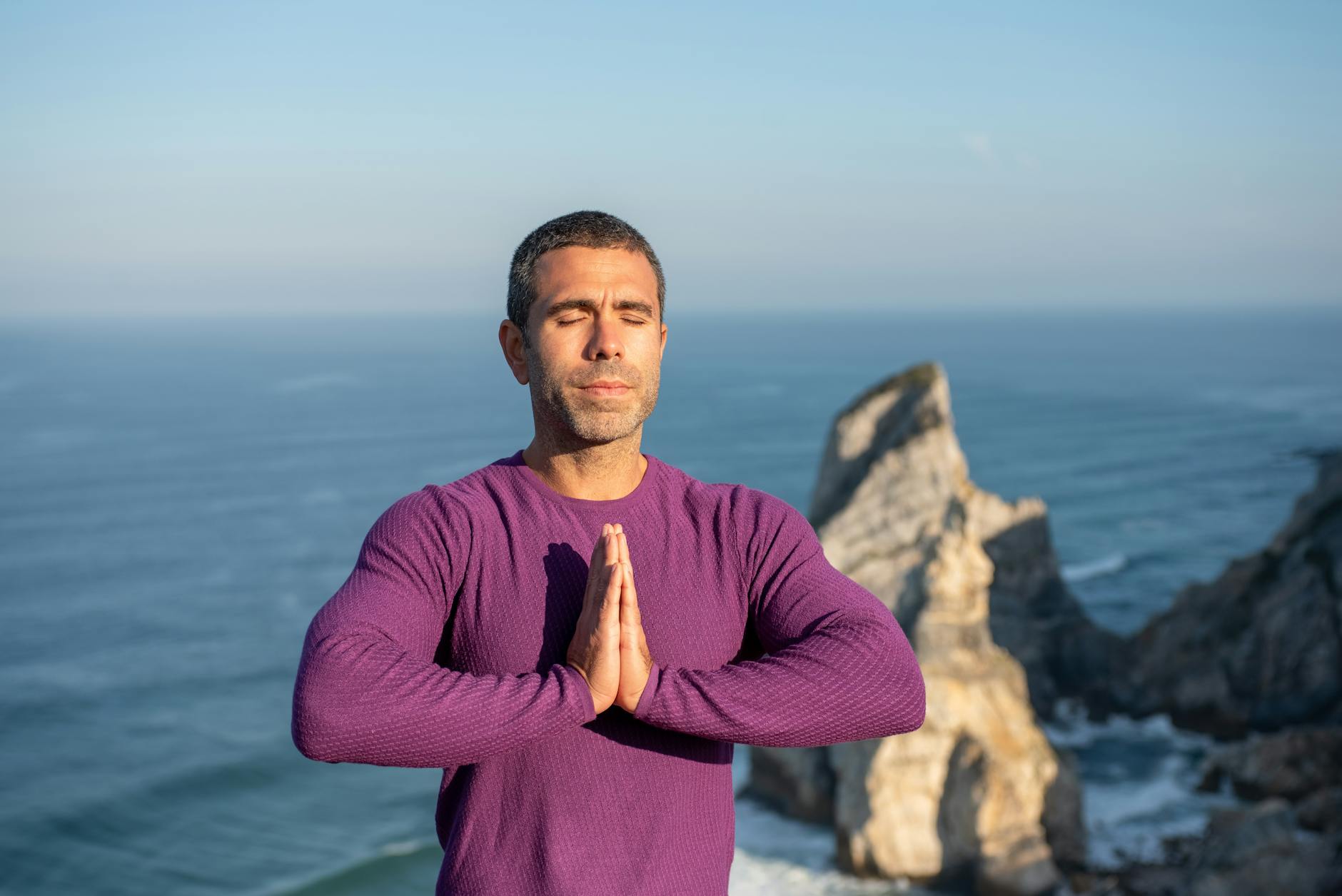Nervousness is a feeling we all experience, whether it’s before a presentation, an interview, or a big event. It’s normal to feel nervous, but learning how to manage these feelings can help you stay calm and focused. In this post, we’ll explore practical strategies that can ease your nerves and help you approach high-pressure situations with confidence.
1. Acknowledge That You Are Nervous
Feeling nervous is completely normal, and it happens when you’re unsure about how things will turn out. Everyone feels nervous at some point, so there’s no need to feel embarrassed. In fact, it can get easier to manage your nerves when you remember you’re not alone, because nervousness is just a part of being human.
Start by identifying what makes you feel anxious. You’ll realize that some situations will always make you more nervous than others. For example, do you get more anxious when talking in front of people or during job interviews? By understanding what causes your nerves, you can prepare for those moments ahead of time. You can even maintain a journal and write down specific events that trigger your anxiety. Over time, you’ll start noticing patterns and you can deal with those events in a better manner.

Additionally, try to change how you think about nervousness. Instead of seeing it as a weakness, look at it as a sign you’re growing. Focus on the opportunity in front of you, instead of worrying about what could go wrong. Nervousness is your body’s way of warning you about the unknown, so think of it as a natural reaction when you step outside your comfort zone.
2. Common Nervous Habits And How To Overcome Them
Many people have nervous habits that they rely on when they feel anxious or stressed. Common habits include biting nails, tapping fingers, bouncing legs, and chewing on pens. These actions might seem harmless, but they can be distracting and sometimes embarrassing in public. They often develop as a way to cope with nervous energy, helping us feel calmer in tense situations.
Breaking nervous habits can be challenging, but it’s possible with practice. First, try to notice when and where you engage in these habits. Do you start biting your nails during tests or important meetings? This awareness is the first step in changing your behavior. Once you know your triggers, you can replace the habit with something healthier, like squeezing a stress ball or taking deep breaths to calm yourself.

Building new habits takes time and patience, so don’t be discouraged if you slip up. Set small goals, like resisting the habit for just a few minutes at a time, and gradually increase. Don’t forget to celebrate your successes, no matter how small. Over time, these healthier habits can replace the old ones, helping you feel more in control and less reliant on nervous habits to handle stress. With regular practice, you can overcome these habits and build better ways to stay calm.
3. Practice Deep Breathing To Calm Down
Controlling your breathing is one of the fastest ways to calm yourself when you’re feeling anxious. Deep breathing is highly effective in calming you when you’re nervous, because it sends a signal to your brain that it’s time to relax. It’s also very simple to practice. Just inhale slowly through your nose, hold it for a count of four, and exhale through your mouth. Doing this lowers your heart rate and clears your thoughts, so that you can take decisions with an alert mind.
Another simple breathing technique that you can use is the 4-7-8 method. This technique is very useful when you’re about to have a panic attack. Inhale for four seconds, hold the breath for seven seconds, and then exhale slowly for eight seconds. This technique engages your parasympathetic nervous system, which helps the body relax and saves energy for other vital tasks.

Practice these deep breathing exercises regularly and try to make it a daily habit. Doing this can help reduce your anxiety levels, making you less likely to have nervous outbursts in situations where you have to deal with a lot of stress. You can start small by practicing deep breathing five minutes a day, and increase the duration as you become better at it. Over time, mindful breathing can make a huge difference in your overall well-being.
4. Visualize Success To Handle Situations Better
Mental rehearsal can help you get ready for a situation without any real risk. Imagine yourself successfully handling the situation that makes you nervous. For example, if you’re nervous about public speaking, picture yourself feeling confident. See yourself walking into the room, speaking clearly, and getting positive feedback from the audience. Your imagination is a powerful tool, and you don’t need special training to use it. But remember, you have to take real action too. If you only daydream, you won’t make any real progress.

Make your mental picture as detailed as possible. Think about how you stand, what you’re wearing, how people react, and how you feel. Add details like sights, sounds, and even smells so that it feels real in your mind. This is important because if it feels real in your imagination, it’ll feel more natural when the time comes.
By visualizing success regularly, you can train your brain to expect positive outcomes. Not only will this help reduce your anxiety, but also improve your mental focus. Studies show that athletes often use visualization to not get nervous before a game, and public speakers do it before an event to improve their performance. Practice this technique each day to build your confidence, and over time, it will feel natural. Before you know it, you’ll be able to overcome performance based anxiety without even thinking about it.
5. Nervousness Or Excitement?
Nervousness and excitement can cause similar physical sensations— increased heartbeat, sweaty palms, and a sudden rise in energy levels. However, you can shift your perspective and think of your nervous energy as excitement for the challenge ahead. Doing this will trick your brain into thinking it’s ready for action instead of being threatened by fear of the unknown.

Instead of letting fear stop you, use it to push you forward. You can turn fear into motivation by changing how you look at fearful situations. When you feel nervous, remind yourself that your body is preparing itself to do something new and important. If it’s too overwhelming for you, write down what’s making you nervous and create a plan to tackle the challenge in front of you. This simple process will force you to take a pause, and give you time and space to think about the problem in a relaxed state of mind.
Use this approach in your daily life to get the most advantage out of it. After a while, you’ll notice that you are able to embrace high-pressure situations, instead of avoiding them. This will also improve your focus and enhance your performance, turning a negative emotion into a positive driver for growth and improvement.
6. Practice Positive Self-Talk
Nervousness often comes from how you talk to yourself, whether you’re speaking out loud or just in your head. If you doubt yourself often, start today by challenging those negative thoughts. For example, instead of thinking, “I hope I don’t mess this up,” take a deep breath and replace it with something positive like, “I’ve prepared for this, and I’m ready.”

Saying daily positive statements like, “I am capable” or “I can handle this” can help build your confidence. We have a great article with 51 uplifting daily affirmations you can use every morning to give your day a positive start. Over time, these positive statements can make you mentally stronger and push out the negative thoughts that make you anxious.
What you do again and again builds up your habits. So, if you think negatively a lot, it can make you feel more nervous and anxious. You can break that cycle by saying a mantra or affirmation before facing something stressful. With practice, this small habit can help shift your thoughts from fear to calm confidence.
7. Prepare Thoroughly In Advance
One of the main reasons we feel nervous is because we’re unsure about how things will unfold. However, by thoroughly preparing for a big event, such as a presentation, test, or an interview you can remove the unknowns. By planning ahead, you can build confidence in your ability to handle whatever comes your way.
“The more you sweat in peace, the less you bleed in war.”
General Norman Schwarzkopf
The quote above highlights the importance of preparation to handle uncertainty. Run through the event several times beforehand. For example, if you’re worried about an interview, practice common questions and answers with a friend or a family member. When you are familiar with what you’ll say or do, you’ll be less nervous when you face the real thing.
You can move your preparation up a notch by anticipating challenges. Think about what could potentially go wrong, and prepare solutions. When you have a plan B (or even a plan C), you won’t be thrown off as easily when you face a sudden change in your plans.
8. Get Regular Physical Exercise
Physical activity helps reduce stress by lowering the body’s production of stress hormones like cortisol, while boosting endorphins, the body’s natural mood lifters. When you exercise regularly, it helps manage your stress and keeps you calm in situations that would usually make you nervous. Some quick benefits of exercise include feeling more energized, having a better mood, and getting a good night’s sleep.

On the day of a big event, doing some light stretching or taking a short walk can help release any nervous tension. Gentle movement improves blood flow to your muscles and brain, which helps you feel more grounded and alert. You can also try deep breathing and grounding exercises like mindfulness meditation to help you feel more present and in control.
Another easy relaxation technique you can learn to calm your nerves is called Progressive Muscle Relaxation. This method involves tightening and then relaxing each muscle group in your body. It helps release built-up tension and makes you more aware of how your body feels, making it easier to relax. Practice this every day, and you’ll notice a big improvement in how well you stay calm during challenging times. Check out the video below to get started.
9. Focus On The Present Moment
The most common reason for being nervous is focusing on worst-case scenarios that haven’t happened yet. Mindfulness meditation can help you ground yourself in the present by concentrating on what’s happening around you right now. Listen to the sounds, feel the ground under your feet, or focus on your breathing to bring yourself back to the present moment.

Simple mindfulness practices, such as observing your surroundings or focusing on your breath, help shift your mind away from future fears and toward the present so that you’re able to stay calm. A couple of quick, simple and easy techniques you can use in situations where you need to calm yourself down immediately are:-
i) Color Picking Technique – Pick a color, and name 5 things in the room with that color.
ii) 5-4-3-2-1 Grounding Technique – Identify 5 things you can see, 4 things you can touch, 3 things you can hear, 2 things you can smell, and 1 thing you can taste.
Another great method of grounding yourself is “anchor” phrases. Create simple anchor phrases like “Here and now” or “One moment at a time” to help redirect your focus during anxious moments. These phrases serve as a reminder to focus on the present moment instead of future worries.
Be careful not to over-analyze every possible outcome, because it creates unnecessary stress, and does not help us in any way. If you’re someone who does a lot of overthinking, take a moment to step back, and focus on what’s in front of you instead of what might go wrong later. This prevents us from worrying about the future, which is not in our control. Instead, we can pay attention to what we can do in the present moment, and increase our chances of success.
10. Limit Caffeine And Sugar
Caffeine and sugar are both stimulants, which means they can make you feel more anxious. Research shows that too much caffeine can lead to a fast, irregular heartbeat, muscle spasms, and feelings of panic, especially when mixed with sugar. This can make it harder for you to feel calm, and mess up your sleep. Keep an eye on how much caffeine and sugar you consume, because drinking too much coffee or eating too many sweets can make anxiety worse.

Rather, try calming herbal teas like chamomile, peppermint, or lavender. These teas don’t have caffeine, and they help you relax, boost your immune system, and calm your nerves. Chamomile tea can reduce inflammation and help with digestion, while peppermint tea is great for soothing an upset stomach and easing problems like constipation and irritable bowel syndrome.
Also, don’t forget to drink enough water, because dehydration can make you feel more nervous. Try to drink at least 4 liters of water daily to help your body function well. Staying hydrated can reduce anxiety and help you feel more ready to handle your tasks.
11. Reach Out For Support
Sometimes, all you need to calm your nerves is to talk to someone. Whether it’s a close friend, family member, or mentor, sharing your feelings can relieve the pressure. When we’re going through a period of anxiety, we’re unable to think clearly, and talking to someone we trust can help us look at a situation from a different set of eyes.

Moreover, knowing that someone believes in you can work wonders for your confidence. Surround yourself with supportive, encouraging people, so that they can give you the emotional boost you need before facing a high-stress event. Build a support network of people who can motivate you, and allow you to talk openly and honestly about your feelings. This is helpful in reducing anxiety and coping with challenges.
Whatever you do, don’t isolate yourself. Anxiety can make you want to pull away from others, but isolation only fuels nervous thoughts. Keep your loved ones close, and don’t hesitate to reach out to your network—whether for advice or a simple pep talk. In most situations, simply knowing that there’s someone to support you when you need them is enough to get you through a nervous episode.
Final Thoughts
Being nervous is a part of life, but it doesn’t have to control you. The next time you feel it creeping in, try some of the techniques we’ve discussed—from deep breathing to reframing nervousness as excitement. With practice, you’ll learn to manage your nerves and even use them to your advantage. The goal isn’t to eliminate nervousness entirely, but to learn how to handle it so you can perform at your best.
What’s your advice on overcoming nervousness?
